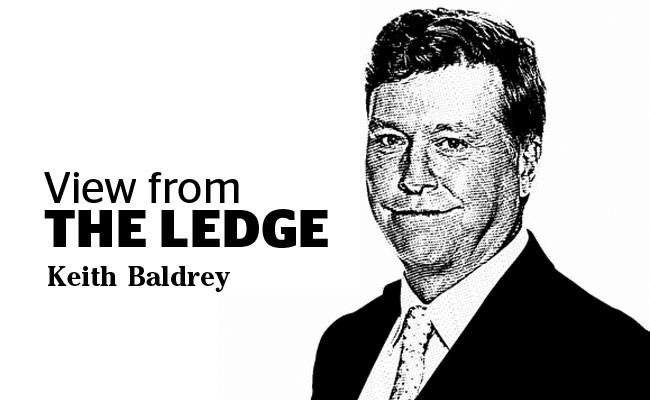The housing crisis in Metro Vancouver is deepening to the point where the B.C. government is likely doing a re-think of its strategy in dealing with it.
The stage is being set for replacing a cautious approach with something bolder.
Last week, the government released data covering more than 10,000 house sales that occurred over a 19-day period in June. The reaction from many was one of derision and scorn. Critics claimed it minimized the amount of foreign money flowing into the grossly overheated housing market.
But while the data itself is likely not substantial enough to draw too many conclusions, there were a couple of dollar amounts associated with it that should be of concern.
Those housing sales involved a whopping $7.6 billion, while the foreign money component of those sales was almost $400 million, with almost of all it coming from those who identified themselves as Chinese nationals.
That’s a staggering amount of money to change hands in just 19 days, and that’s a lot of foreign money coming in as well, even if on a percentage basis it was only five per cent of all sales in Metro Vancouver.
In fact, if those 19 days of sales activity are any indication, B.C.’s booming economy may be attributable to the housing industry alone.
The role of Chinese investment is escalating as a hot-button political issue. The NDP continues to aggressively push for a tax on that money, and the overtones of this issue risk becoming ugly.
The government will continue to collect the data and Finance Minister Mike de Jong hopes to release more of it on a monthly basis. But I suspect the public reaction won’t change much when he does.
Adding to the crisis are the rapidly worsening problems faced by renters. The dream of buying a home in much of Metro Vancouver vanished for most people some time ago, but now finding rental accommodation has also become increasingly difficult (if not impossible in some areas).
The rental side of the housing crisis has implications for more people than the sales side. Millennials (now the largest single demographic group in the population) are being squeezed particularly hard.
Not only has the vacancy rate shrunk dramatically, but rents themselves have skyrocketed. A one-bedroom apartment for $1,500 a month is considered a steal in many places.
Students attending post-secondary campuses may find themselves facing an emergency situation come fall: they may simply have no place to live while they attend school, or they may find themselves paying astronomically high rent while sharing a tiny space with a half dozen roommates.
As Vancouver itself becomes unaffordable for an increasingly large number of people, and as that unaffordability spreads throughout the region, the B.C. Liberal government has to be concerned as the spring election draws ever closer.
Elections are won by winning the most ridings, and there are anywhere from seven to 10 ridings currently held by the B.C. Liberals that could be in jeopardy if anger over the housing situation isn’t placated.
Sitting B.C. Liberal MLAs such as Suzanne Anton (Vancouver-Fraserview), Richard Lee (Burnaby North), Peter Fassbender (Surrey-Fleetwood) and Linda Reimer (Port Moody-Coquitlam), to name four who narrowly won their seats in 2013, have to be more than a little nervous right now as they prepare to face the electorate.
The NDP, understandably, will try to exploit the housing crisis for all it’s worth, tapping into a rising anger and frustration that could easily lash out at a government that looks like it’s not doing enough to deal with the worsening situation.
In fact, the housing crisis seems to be one of the few issues that resonate with the public where the NDP holds the edge right now.
Some industry watchers suggest the housing market is showing signs of slowing down ever so slightly. But a mere slow down won’t make homes any more affordable, and it may still leave many, many renters out in the cold.
The housing crisis isn’t going away. We’ll see if the government has the ability to truly come to grips with it.
Keith Baldrey is chief political reporter for Global BC. He can be reached via email at [email protected].
What are your thoughts? Send us a letter via email by clicking here or post a comment below.



